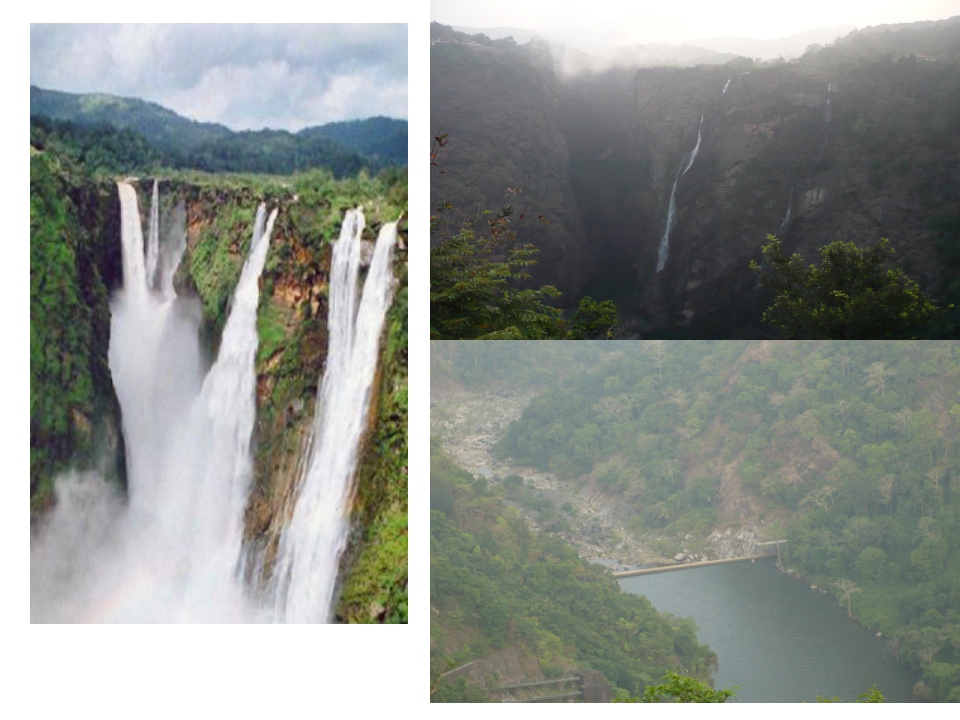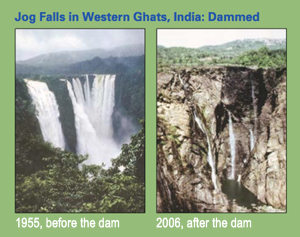Parineeta Dandekar
1 dam, 2 projects, many fools?
Posted on 22 Dec, 2013 05:49 PMI was looking for Greenko’s 24.75 MW Perla Mini Hydel Project at Perla village near Bantwal, Mangalore. One would think that you wouldn't really have to search for a hydel project site given its size and scale but the villagers at Perla were puzzled when I asked them to take me there as the Project Design Document had noted the project location as Perla village.

Damaged rivers, collapsing fisheries: Impacts of dams on riverine fisheries in India - Article by SANDRP
Posted on 11 Oct, 2012 09:55 PMMore than 10.86 million Indians depend on rivers, wetlands, floodplains, estuaries, ponds and tanks for subsistence and market-based fisheries. Though the absolute contribution of riverine fisheries may not be huge in economic terms, it is a very crucial component in livelihood and nutritial security of the rural poor.
"Citizens need to engage in critiquing environment impact assessments": Report of a workshop on environmental flows, organised by Himmothhan and International Rivers at Dehradun
Posted on 24 Jun, 2012 04:39 PMWhat do we see our rivers as? Are they merely conduits for water that is to be used to its fullest extent? Or are they valued and revered ecosystems? The Himmotthan Society, Dehradun and International Rivers, U.S.A., hosted a discussion a workshop on ‘Environmental Flows’ at Hotel Madhuban, Dehradun on 08 June 2012 that sought to clarify the issues around these questions.
A Primer on the What, Why and How of environmental flows, authored by Dr. Latha Anantha (River Research Centre, Kerala) and Parineeta Dandekar (South Asia Network on Dams, Rivers and People, SANDRP) and published by International Rivers, was shared with the participants. The presentations made during this workshop are presented in this article.
The legendary Jog falls are a shadow of their former self after damming (Courtesy: Dr.Latha Anantha)
Ignoring precaution, MoEF clears a project which has been categorically rejected by majority Standing Committee of the NBWL
Posted on 26 Feb, 2012 01:31 PMGuest Post : Parineeta Dandekar and Himanshu Thakkar
Saving some last remaining free flowing rivers
Posted on 24 Jan, 2012 06:38 AMGuest post by: Parineeta Dandekar
"Meeting urban water challenges is matter of political will and priorities, not about technical solutions"
Posted on 17 Sep, 2011 08:55 AMGuest post by: Parineeta Dandekar
This year's World Water Week in Stockholm explored water and sanitation challenges faced by urban areas as well as the water, sanitation and equity challenges posed by urban areas. We take a look at some of the presentations and discussions that took place, especially with reference to India and South Asia.
Forget Prometheus and remember Bhagiratha: Wrong and right thinking about rivers ' - Shri Ramaswamy Iyer s lecture at School of Environmental Sciences, Jawaharlal Nehru University (June 2011)
Posted on 22 Jun, 2011 09:55 AM“Current economic philosophy exalts consumption and growth. If we are hypnotised by visions of 8% or 10% growth, we are bound to ‘demand’ more and more and still more water; and either government engineers or private companies and their engineers will come up with supply-side answers in the form of large projects which will cause even greater distress to the rivers”.
Tehri Dam across Ganga
Source: haridwar.nic.in/ gangaji.htm
I am very grateful to Prof. Sudha Bhattacharya for having invited me to this Seminar. I was not sure whether what I have to say would fit in well with the theme of this Seminar, but she persuaded me to say yes, and so here I am.
Taking action in India on downstream impact of dams - Report of the workshop held by International Rivers and Save Western Ghats Movement at Jog Falls, Karnataka in May 2011
Posted on 14 Jun, 2011 05:17 PM Jog falls in Western Ghats
Jog falls in Western Ghats
These dams have had a profound negative impact on communities and ecology upstream and downstream. While promised benefits of these dams (irrigation, hydro-power or flood control) have been overstated, numerous interrelated and complex negative impacts have simply not been studied or documented. Nonetheless, communities and ecosystems continue paying huge prices of these impacts.
Citizen's uprising against encroachment and pollution of Ram Nadi, an urban river in Pune, Maharashtra
Posted on 25 Apr, 2011 11:37 AMForwarded to the portal by: Parineeta Dandekar